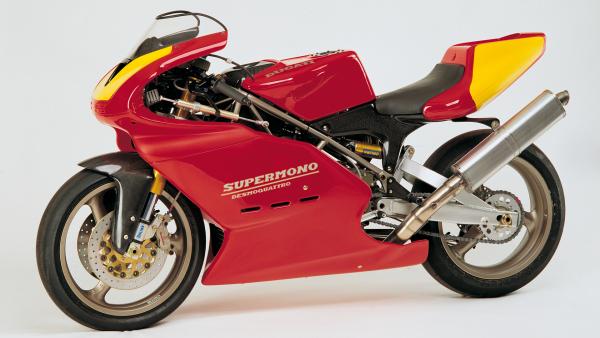
A new engine is in development by QJ Motor, with an unusual take on a single-cylinder engine.
A single-cylinder engine might seem inherently simple, but what would appear to make it straightforward also brings intricate problems.
Most notably, that of engine balance, because there is nothing to counteract the forces generated by the movement of the piston and connecting rod during operation. This causes the engine to rock, unless the engine designer places a counterweight on the crankshaft which can be used to balance the engine forces if the correct mass is used. This increases engine efficiency because less energy is lost to that force imbalance, increases the durability of the engine because the vibration created by an imbalanced engine creates wear on the crankshaft and other engine components, and allows the engine to rev higher because of the exponentiality of the forces caused by an imbalance as engine speed increases.
However, the downside of a counterweight on the crankshaft of a single-cylinder engine is that they create a lateral vibration at 90 degrees and 270 degrees of rotation because at those rotation angles, the weight is not opposing any of the movement of the connecting rod and piston, which are moving up-and-down.
An alternative is now being developed by the Chinese manufacturer, QJ Motor, as shown in patents published by Cycle World. They show what immediately looks like a V-twin, but one cylinder is much smaller than the other, and is actually inoperational, with no cylinder head. It is simply there to have a piston and connecting rod rotating in an oppositional way to the rotation of the connecting rod and piston of the firing cylinder in order to balance the engine - the piston is weighted to do so. The piston, for example, in the ‘dead’ cylinder has a hole so as to not unnecessarily compress the air in that non-firing cylinder.
Historically Ducati
As Cycle World points out, this is a design that has routes in Borgo Panigale, the home of Ducati, who launched the Supermono 550 circuit racer in 1993 with a similar design.
Ducati’s final, launch version of the Supermono 550 basically took a Desmoquattro V-twin and removed the rear cylinder (which doesn’t sound entirely dissimilar to the new Ducati Hypermotard 698’s Superquadro Mono single), but kept the connecting rod of the missing cylinder and added to it a weight in place of the missing piston. This reduced vibration, by retaining the Desmoquattro’s 90-degree crankshaft, and therefore allowed for more revs (it had a redline of 10,500rpm).
Originally, though, the Supermono 550 was going to use a design more similar to that shown in the QJ Motor patents, with a removed cylinder head on the non-firing cylinder, but concerns over friction created by the piston moving within the un-headed cylinder led them down the aforementioned design path they eventually went with.
Find all the latest motorcycle news on Visordown.

